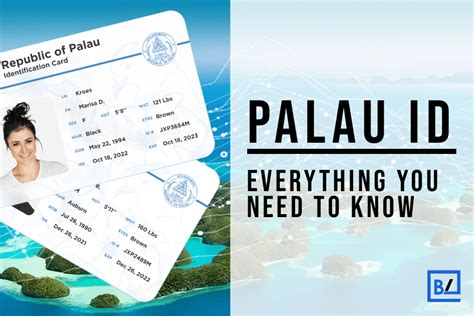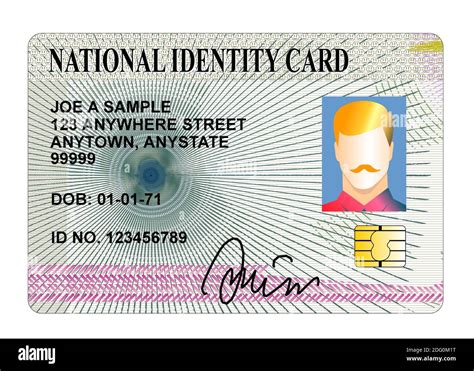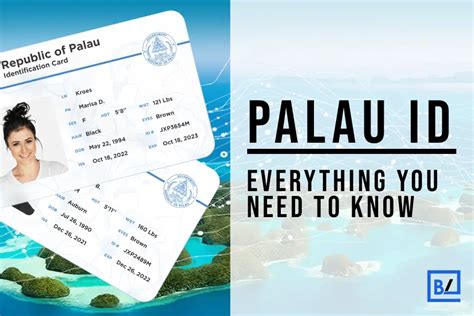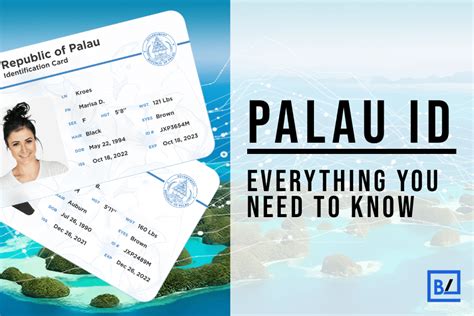Defining a National ID
A national ID, also known as a national identity card, is an official document issued by a government to its citizens or permanent residents. It typically contains personal information such as name, date of birth, address, and a unique identification number. National IDs serve multiple purposes, including:

- Identity verification
- Proof of citizenship or residence
- Access to government services
- Electoral participation
Types of National IDs
National IDs come in various forms, depending on the country issuing them. Some common types include:
| Type | Description |
|---|---|
| Physical Card | A plastic or paper card with embedded security features |
| Electronic ID (eID) | A digital representation of a physical ID, stored on a chip or mobile device |
| Biometric ID | Incorporates biometric data such as fingerprints, iris scans, or facial recognition |
| Mobile ID | Accessible through a smartphone app, combining physical and electronic elements |
Benefits of National IDs
National IDs offer several advantages:
- Enhanced Security: By providing a reliable method of identification, national IDs reduce identity fraud and contribute to national security.
- Streamlined Access to Services: National IDs simplify citizen interactions with government agencies and financial institutions, saving time and effort.
- Improved Electoral Processes: They help prevent voter impersonation and ensure fair and transparent elections.
- Economic Benefits: National IDs facilitate smoother economic transactions, promote cross-border trade, and attract foreign investment.
Challenges of National IDs
However, national IDs also present certain challenges:
- Privacy Concerns: The collection and storage of sensitive personal data raises privacy concerns that require careful regulation and oversight.
- Potential for Discrimination: If not implemented fairly and equitably, national IDs can perpetuate societal biases and lead to discrimination.
- Cost of Implementation: Establishing and maintaining a national ID system can be costly, requiring significant investment in infrastructure and resources.
New Applications for National IDs
Beyond traditional purposes, advancements in technology are creating new opportunities for national IDs:
- Digital Identity Management: National IDs can serve as the foundation for comprehensive digital identity systems, allowing citizens to manage their online identities securely.
- Digital Voting: National IDs can facilitate secure and convenient remote voting, increasing voter participation and reducing fraud.
- Frictionless Travel: Biometric IDs can streamline travel experiences, enabling faster and more automated border crossings.
- Access to Healthcare: National IDs can integrate with healthcare systems, improving access to medical records and personalized healthcare.
Tables: National ID Statistics and Trends
Table 1: National ID Issuance Rates
| Country | Issuance Rate |
|---|---|
| India | 99% |
| United States | 50% |
| China | 100% |
| United Kingdom | 95% |
Table 2: Global National ID Market Size
| Year | Market Size (USD) |
|---|---|
| 2020 | $15 billion |
| 2025 | $22 billion (estimated) |
Table 3: National ID Features and Technologies
| Feature | Technology |
|---|---|
| Biometric Data | Fingerprint scanning, facial recognition |
| Chip Technology | RFID, NFC |
| Mobile Integration | QR codes, mobile apps |
| Digital Signature | Public key infrastructure |
Table 4: National ID Impact on Identity Fraud
| Study | Reduction in Identity Fraud |
|---|---|
| World Bank | 50% |
| United Nations | 60% (estimated) |
Customer Perspectives: Questions to Consider
- How comfortable are you with the government collecting and storing your personal information?
- Do you believe national IDs are necessary for enhanced security or do they pose a threat to privacy?
- What potential benefits of national IDs do you find most appealing?
- Are you concerned about the potential for discrimination associated with national IDs?
Tips and Tricks for Using National IDs
- Keep your national ID secure and prevent it from falling into the wrong hands.
- Consider using a RFID-blocking wallet or sleeve to protect your ID from electronic theft.
- Report lost or stolen national IDs immediately to the issuing authority.
- Keep your national ID updated with your current address and other relevant information.
- Be aware of the safety features on your national ID and report any suspicious activity.
Frequently Asked Questions (FAQs)
-
What is the purpose of a national ID?
– To provide secure identification, streamline access to services, and enhance national security. -
Who is eligible for a national ID?
– Citizens and permanent residents of the issuing country. -
What information is typically included on a national ID?
– Name, date of birth, address, unique identification number, and other relevant personal data. -
How can I obtain a national ID?
– Apply through government agencies or designated authorized entities. -
What are the different types of national IDs?
– Physical cards, electronic IDs, biometric IDs, and mobile IDs. -
What are the security features of national IDs?
– Holograms, watermarks, digital signatures, and biometric data. -
What are the benefits of having a national ID?
– Enhanced security, simplified access to services, improved electoral processes, and economic advantages. -
What are the potential challenges associated with national IDs?
– Privacy concerns, potential for discrimination, and implementation costs.



